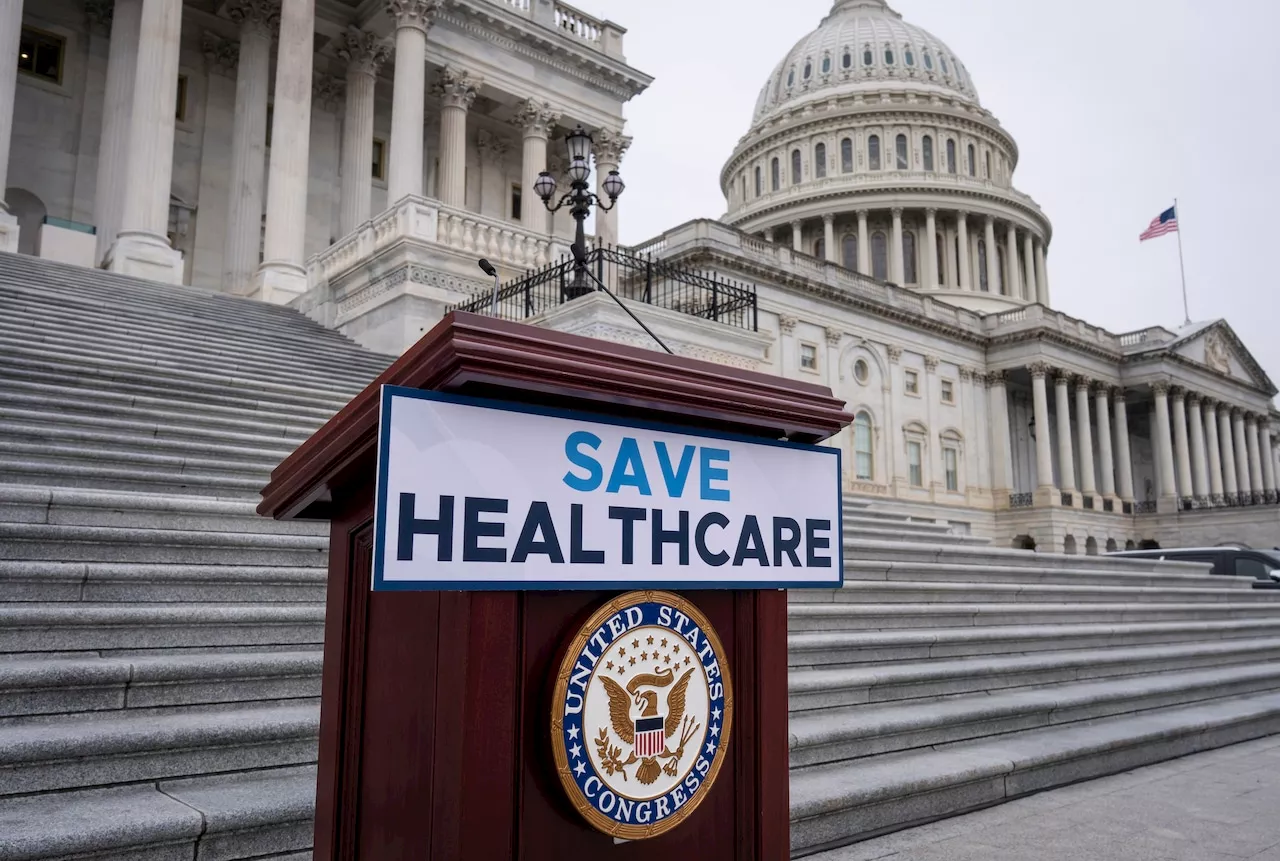Health
Political Clash Over Obamacare Subsidies Fuels Government Shutdown

Concerns over rising healthcare costs have intensified as the debate surrounding Obamacare subsidies takes center stage amid a government shutdown. A recent poll revealed that approximately 60% of Americans are “extremely” or “very” worried about potential increases in their health expenses in the coming year. As House Democrats prepare to address the media on the steps of the Capitol, they are urging Republicans to incorporate an extension of expiring healthcare benefits into any government funding agreement.
The Affordable Care Act (ACA), enacted in 2010, aimed to reduce the number of uninsured individuals and enhance the affordability of health coverage. The law established state-level exchanges that allow individuals to purchase health insurance, which has significantly increased enrollment. Analysis from the Kaiser Family Foundation (KFF) indicates that if the tax credits provided through these exchanges expire, annual out-of-pocket premiums could surge by an estimated 114%, translating to an average increase of $1,016 next year.
In 2021, during a period of Democratic control in Congress, lawmakers expanded premium assistance, eliminating costs for many lower-income individuals and limiting premiums for higher earners to no more than 8.5% of their income. Although Democrats extended these subsidies in 2022 for an additional three years, they failed to secure a permanent solution. The current expiration date is set for January 1, 2026.
Republicans have stated they will not engage in negotiations regarding the subsidies until Democrats agree to reopen the government, which shut down on October 1, 2025. While lawmakers from both parties have been discussing potential solutions behind closed doors, it remains uncertain whether a compromise can be reached.
Senator Rick Scott of Florida underscored the Republican perspective, asserting that the focus should not solely be on the expiring subsidies but rather on the broader issue of healthcare costs. In a briefing, representatives from the libertarian Cato Institute and the conservative Paragon Health Institute criticized the subsidies as “COVID credits,” claiming they have facilitated fraudulent enrollments.
Despite the stalemate, some Republicans are open to extending the subsidies, albeit with modifications. Senator Josh Hawley of Missouri noted that many individuals utilizing the ACA exchanges lack alternatives and are already facing high costs. He indicated a willingness to discuss reforms, including potential income limits for eligibility.
Negotiations are further complicated by the desire among some Republicans to overhaul the ACA entirely. While conservative voices push for a rollback of expanded subsidies, others advocate for more moderate changes that could attract bipartisan support. Senate Majority Leader John Thune of South Dakota has expressed openness to extending the subsidies with certain conditions.
As the November 1, 2025, open enrollment date approaches, lawmakers are increasingly aware of the pressing need for a resolution. Senator Jeanne Shaheen of New Hampshire has been actively seeking common ground, suggesting that Congress might also consider extending enrollment periods in light of the current legislative impasse.
The ongoing discussions highlight the critical intersection of healthcare policy and government funding, with potential repercussions for millions of Americans. As lawmakers grapple with these complex issues, the outcome will likely have significant implications for the future of healthcare in the United States.
-

 Science2 weeks ago
Science2 weeks agoIROS 2025 to Showcase Cutting-Edge Robotics Innovations in China
-

 Politics2 weeks ago
Politics2 weeks agoJudge Considers Dismissal of Chelsea Housing Case Citing AI Flaws
-

 World2 weeks ago
World2 weeks agoBravo Company Veterans Honored with Bronze Medals After 56 Years
-

 Lifestyle2 weeks ago
Lifestyle2 weeks agoStone Island’s Logo Worn by Extremists Sparks Brand Dilemma
-

 Top Stories2 weeks ago
Top Stories2 weeks agoIndonesia Suspends 27,000 Bank Accounts in Online Gambling Crackdown
-

 Health2 weeks ago
Health2 weeks agoStartup Liberate Bio Secures $31 Million for Next-Gen Therapies
-

 Sports2 weeks ago
Sports2 weeks agoMel Kiper Jr. Reveals Top 25 Prospects for 2026 NFL Draft
-

 Health2 weeks ago
Health2 weeks agoTop Hyaluronic Acid Serums for Radiant Skin in 2025
-

 World2 weeks ago
World2 weeks agoHoneywell Predicts Record Demand for Business Jets Over Next Decade
-

 Lifestyle2 weeks ago
Lifestyle2 weeks agoMary Morgan Jackson Crowned Little Miss National Peanut Festival 2025
-

 Sports2 weeks ago
Sports2 weeks agoYamamoto’s Mastery Leads Dodgers to 5-1 Victory in NLCS Game 2
-

 Politics2 weeks ago
Politics2 weeks agoNew Jersey Voters Urged to Register Ahead of November Election









